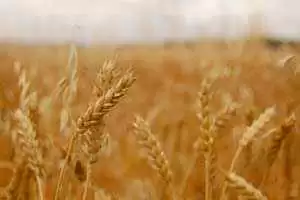.webp.d8f5d5806be431452d3c544fa6e395d7.webp)
Celiac.com 07/25/2012 - While a great deal of progress has been made with gluten-free food over the last ten years, many celiacs still feel that they are 'missing out' on gluten-containing foods. Fadi Aramouni, professor of food science at Kansas State University is working to change this through extensive research and testing on sorghum, as well as other wheat alternatives.
Sorghum is an appealing alternative to wheat because it is already widely produced in the United States (it is primarily used as feed). The problem is that sorghum is different from wheat, and requires different processing methods to yield food products that are comparable to their wheat counterparts.
Celiac.com Sponsor (A12):
Aramouni and his team of students and researchers began their search for a non-gluten wheat substitute by carefully inspecting the six varieties of sorghum that are grown in Kansas. Qualities such as grain hardness, dough quality, stretching and rolling qualities, protein, carbohydrates and fiber content as well as taste and look of the finished product were all considered.
According to Aramouni, this stage of their research yielded an important discovery: the milling stage dramatically alters the properties of sorghum flour. Different particle sizes yield different results, so the consistency and taste of sorghum-based foods can be modulated before they are even prepared or cooked.
In addition to the taste and consistency, Aramouni's team also found that particle size alters sorghum's glycemic index, so it is possible that a very specific milling practice could make products healthier, perhaps even compared to other gluten-free wheat alternatives like corn and rice.
Along with the grain science and industry department at Kansas State University and the U.S. Department of Agriculture laboratory in Manhattan, Kansas, Aramouni and his team have developed a variety of sorghum-based tortillas, waffle ice cream cones, breads and Belgian waffles. Time and many taste tests will tell whether Aramouni's research will pay off in the form of more appetizing gluten-free products, but at the very least he and his team are helping us understand that is not just about what grains you use, but how they are processed.
Source:










Recommended Comments
Create an account or sign in to comment
You need to be a member in order to leave a comment
Create an account
Sign up for a new account in our community. It's easy!
Register a new accountSign in
Already have an account? Sign in here.
Sign In Now